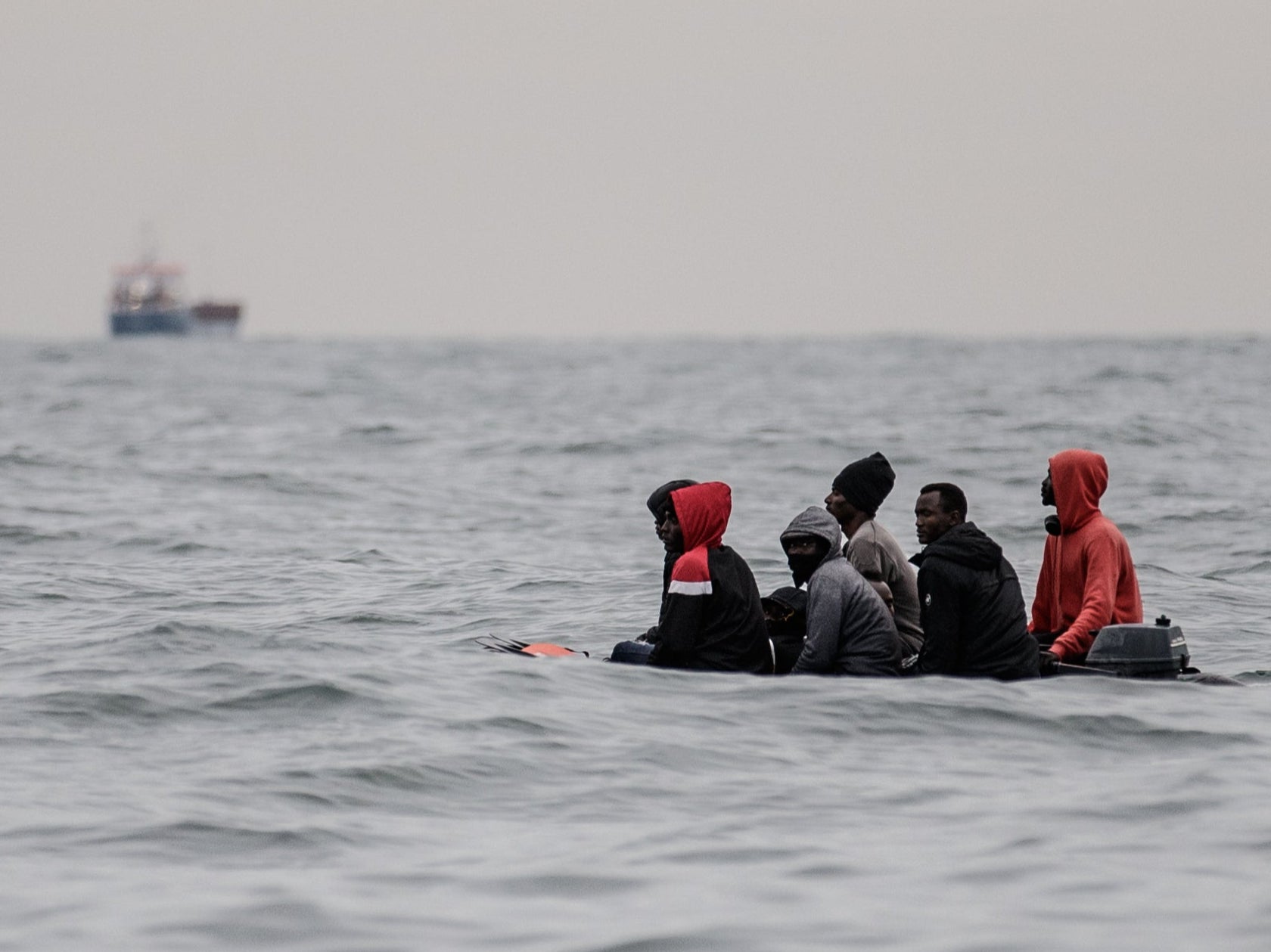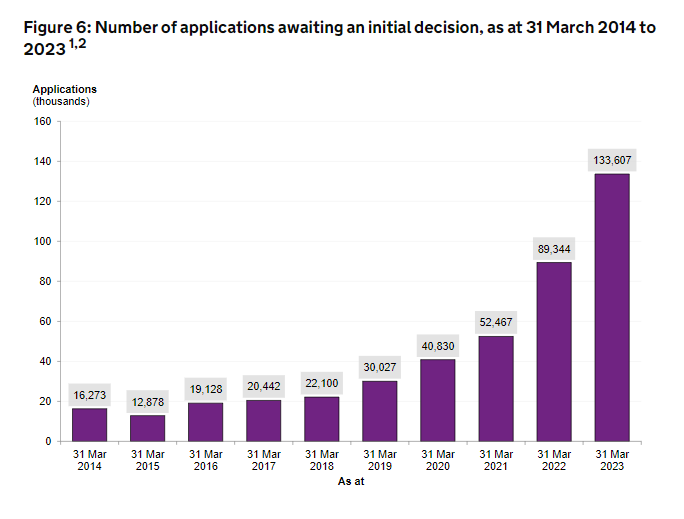Rishi Sunak’s vow to stop small boat crossings ‘delusionary’, former French ambassador says
Sylvie Bermann warns long coastline and smugglers’ changing tactics mean crossings cannot be totally stopped

Your support helps us to tell the story
From reproductive rights to climate change to Big Tech, The Independent is on the ground when the story is developing. Whether it's investigating the financials of Elon Musk's pro-Trump PAC or producing our latest documentary, 'The A Word', which shines a light on the American women fighting for reproductive rights, we know how important it is to parse out the facts from the messaging.
At such a critical moment in US history, we need reporters on the ground. Your donation allows us to keep sending journalists to speak to both sides of the story.
The Independent is trusted by Americans across the entire political spectrum. And unlike many other quality news outlets, we choose not to lock Americans out of our reporting and analysis with paywalls. We believe quality journalism should be available to everyone, paid for by those who can afford it.
Your support makes all the difference.The former French ambassador to the UK has said it is “delusionary” to expect to stop all small boats crossing the English Channel.
Sylvie Bermann, who was in the post between 2014 and 2017, said previous efforts to prevent migrants using ferries, lorries and the Channel Tunnel had pushed them to find other routes.
“The problem is that if you don’t have legal processing or if it doesn’t work people will try to cross the Channel illegally,” she told BBC Radio 4’s Today programme.
“We have 150km (93 miles) of coast and so it’s very difficult to prevent everyone from going to the UK, in particular if some are desperate and you have smugglers. To expect that no one will cross the Channel is totally delusionary.”
Rishi Sunak has made “stopping the boats” one of his five key pledges to the public ahead of the next general election, but has faced significant setbacks including a court ruling against the Rwanda deal and safety crises and delays to “alternative accommodation” for asylum seekers.
Channel crossings are currently 18 per cent down on this time last year, with around 17,300 people having made the journey, compared to over 21,000 by 18 August 2022.
But experts say the drop has been caused by unseasonably bad weather rather than the government’s attempted “deterrents”, and warn that smugglers are launching large numbers of dinghies in groups to evade French authorities.
Ministers have signed a three-year deal worth £480m to increase security along the French coastline, but figures show a fall in the number of crossings prevented.
Official statistics published by The Telegraph show that 13,759 – or 45.2 per cent – of migrants have been intercepted by French beach patrols since January, down from 17,032 (45.8 per cent) over the same period last year.
Ms Bermann said French police were “doing what they can”, but that France already had twice as many asylum seekers as Britain, adding: “Now the port is sealed, the Tunnel is sealed, but of course they find other routes.”
An official from the ISU, which represents Border Force workers and other staff responding to crossings in Kent, said smugglers were changing their behaviour.
Professional officer Lucy Moreton said boats were being “bunched together” in a phenomenon that may have contributed to Saturday’s sinking that killed six Afghan refugees.
“Everybody sets off at once on the basis that they can only stop some of them, not all of them,” she told Today.
“Where we would see boats going off singly and more slowly in a measured fashion, they now seem to be rushing to get off the beach and all going together in big groups.”
Ms Moreton said that the last two decades of patterns in irregular migration to Britain showed that “all you do when you make it more difficult to use one route is simply displace the traffic to another route”.
“I doubt it’s ever possible to stop 100 per cent of the boats,” she added. “It’s a large and open section of coastline.”
Ms Moreton said that the slow processing of asylum claims, taking up to six years in some cases, was a “pull” for people taking dangerous journeys to the UK.
The prime minister has vowed to clear a backlog of pre-June 2022 asylum claims by the end of this year, but The Independent revealed that most applications are being “withdrawn” by the Home Office for administrative reasons rather than being properly decided.
The tactic is leaving thousands of asylum seekers still in the UK without rights to government housing or financial support, and banned from working.
The Public and Commercial Services (PCS) union, which represents almost 16,000 staff across different Home Office departments and Border Force, said the government would create safe and legal alternatives to small boat crossings “if it was serious about stopping them”.
“This is the only way to prevent these dangerous crossings,” head of bargaining Paul O’Connor told The Independent. “We agree that under the current arrangements it's delusional to say all boats can be stopped.”

The Refugee Council charity said the creation of routes for asylum seekers, who must be physically present in the UK to make a claim but have no visa to reach the country under current laws, would be the “most effective way” of stopping the boats.
“We all want to stop people from risking their lives in ill-equipped vessels to cross the Channel,” a spokesperson added.
“By putting in place safe routes and treating people fairly and with compassion when they reach our shores, we’ll be closer to achieving this. The government can start by improving and investing in family reunion mechanisms, resettlement and a trial of refugee visas.”
Afghans are now the most common nationality arriving in small boats, following the collapse in the number of refugees resettled directly from the country.
Last month, the government passed a raft of punitive asylum laws aiming to see small boat migrants detained and deported without having their claims considered.
However, the Illegal Migration Act cannot be implemented because there are no operational deportation agreements in place, with the £140m Rwanda scheme ruled unlawful by the Court of Appeal.
A Home Office spokesperson said: “The unacceptable number of people risking their lives by making these dangerous crossings is placing an unprecedented strain on our asylum system.
“Our priority is to stop the boats, and our Small Boats Operational Command is working alongside our French partners and other agencies to disrupt the people smugglers.
“The government is going even further through our Illegal Migration Act which will mean that people arriving in the UK illegally are detained and promptly removed to their country of origin or a safe third country.”



Join our commenting forum
Join thought-provoking conversations, follow other Independent readers and see their replies
30Comments